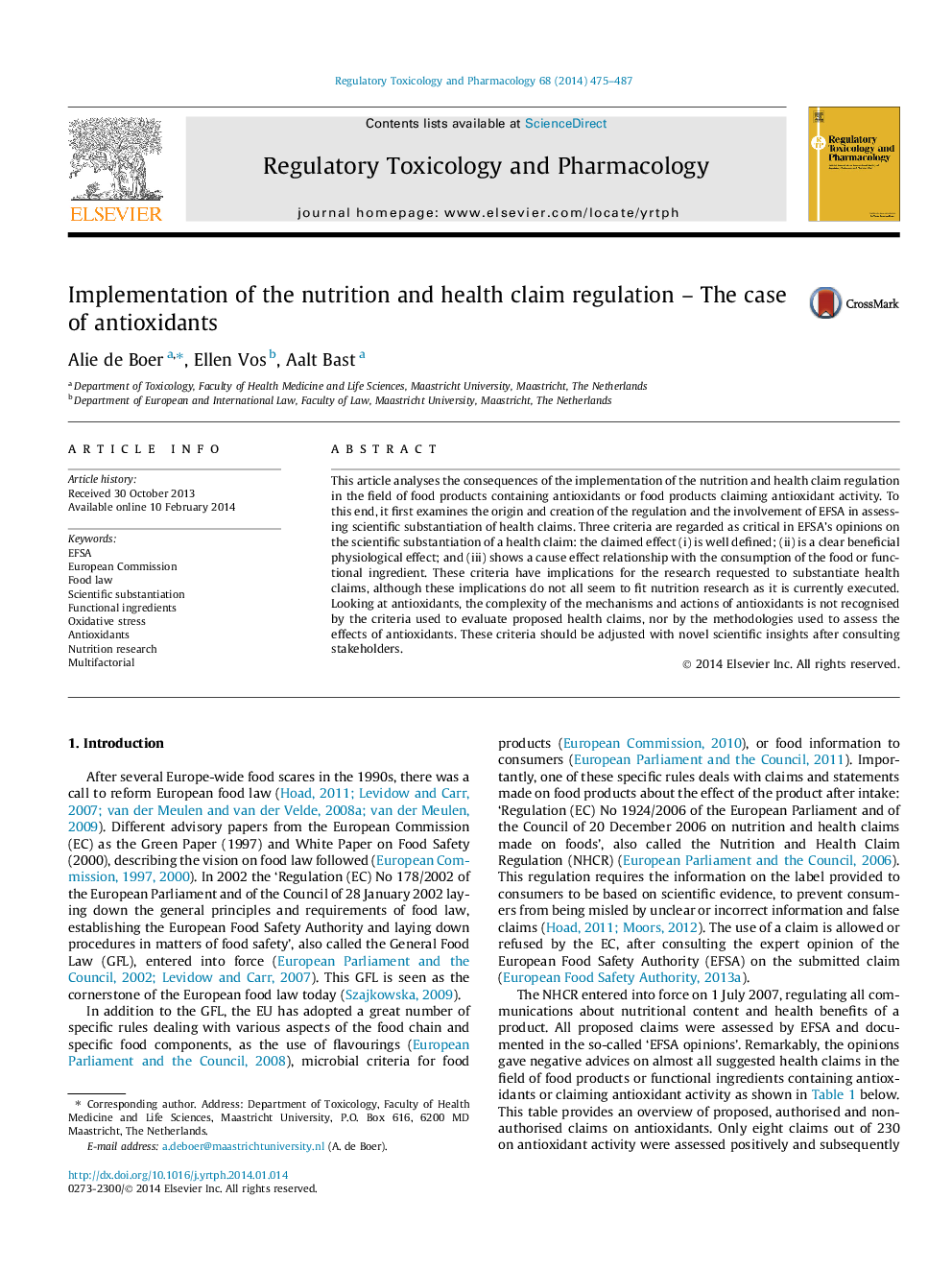| Article ID | Journal | Published Year | Pages | File Type |
|---|---|---|---|---|
| 5857196 | Regulatory Toxicology and Pharmacology | 2014 | 13 Pages |
Abstract
This article analyses the consequences of the implementation of the nutrition and health claim regulation in the field of food products containing antioxidants or food products claiming antioxidant activity. To this end, it first examines the origin and creation of the regulation and the involvement of EFSA in assessing scientific substantiation of health claims. Three criteria are regarded as critical in EFSA's opinions on the scientific substantiation of a health claim: the claimed effect (i) is well defined; (ii) is a clear beneficial physiological effect; and (iii) shows a cause effect relationship with the consumption of the food or functional ingredient. These criteria have implications for the research requested to substantiate health claims, although these implications do not all seem to fit nutrition research as it is currently executed. Looking at antioxidants, the complexity of the mechanisms and actions of antioxidants is not recognised by the criteria used to evaluate proposed health claims, nor by the methodologies used to assess the effects of antioxidants. These criteria should be adjusted with novel scientific insights after consulting stakeholders.
Keywords
Related Topics
Life Sciences
Environmental Science
Health, Toxicology and Mutagenesis
Authors
Alie de Boer, Ellen Vos, Aalt Bast,
